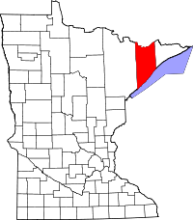Pole Issue Means More Delay For Lake County Project
Lake County, a rural area on the north side of Minnesota's portion of Lake Superior, has long suffered with just dial up and satellite, with slow cable connections available in some of the towns. After receiving a stimulus project to build a county-owned FTTH project connecting everyone, many thought their broadband troubles were over.
But Mediacom attacked first, with unsubstantiated allegations of rules violations that investigators found to be lacking in merit. When Mediacom announced it would not further delay the project with a lawsuit, we again thought the project would proceed.
But now a dispute over who owns some of the poles is holding up the project. The Lake County News reports that Frontier asserts ownership of some poles on which aerial fiber optic cables sit as the project nears completion of Phase One. From the article:
There have been questions over the ownership of these poles in recent weeks. The poles, many of which Lake Connections has already utilized for attaching fiber, are within Two Harbors city limits. Frontier, a telecommunications provider in Lake County, said Lake Connections connected to their poles without submitting permit applications.
In an earlier report (reprinted here on mobilitytechzone.com and edited to include comments from Frontier), Mayor Randy Bolen declined to take an official position on the dispute between Frontier Communications and the install company, Lake Connections.
According to that October 25th report, there was a pole agreement between the two, but the agreement did not approach the issue of pole ownership. Rather than bring up the issue during negotiations, Frontier has waited until now to raise the challenge. Also from the article:



